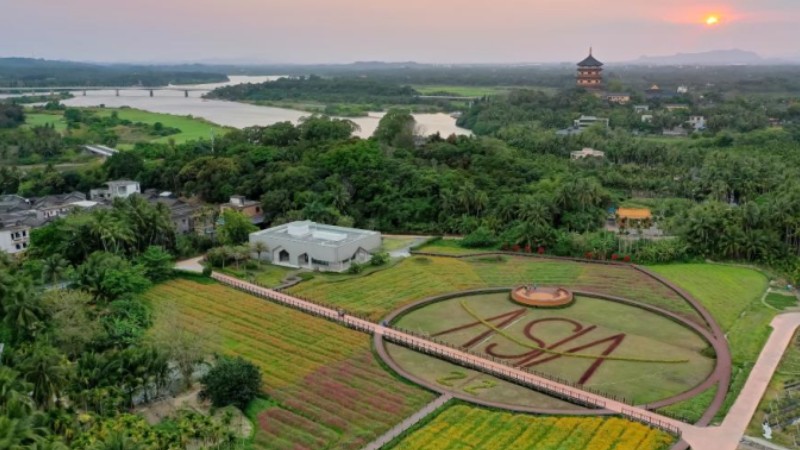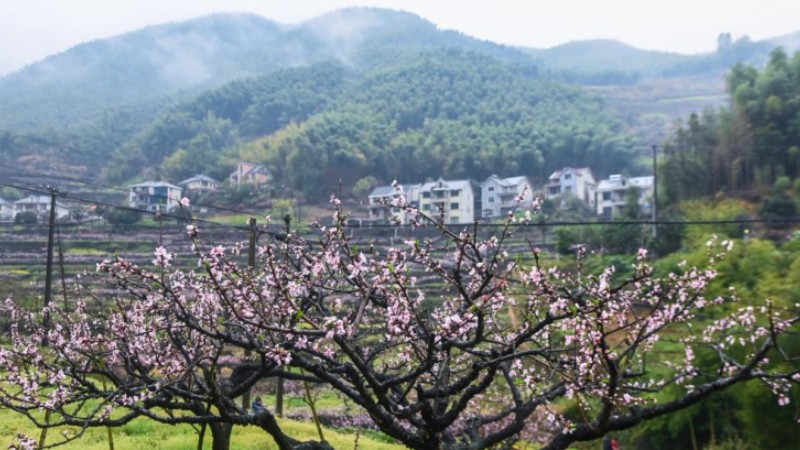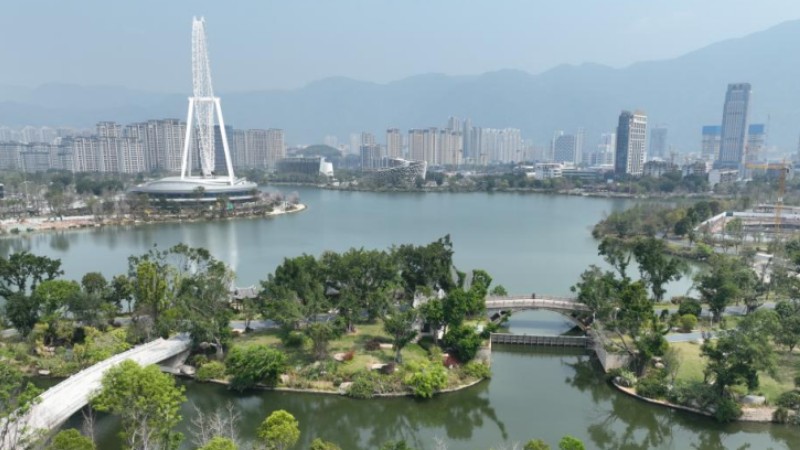Initiative can help civilizations thrive
China's proposal plays part in advancing modernization process
The Global Civilization Initiative, which calls for respecting diversity and seeks dialogue between cultures, can bring peace and development to the world, said China observers in the United Kingdom.
President Xi Jinping, who is also general secretary of the Communist Party of China Central Committee, proposed the initiative as he spoke via video link at the CPC in Dialogue with World Political Parties High-Level Meeting on March 15. Representatives of more than 500 political parties and organizations from over 150 countries attended the meeting.
"A single flower does not make spring, while one hundred flowers in full blossom bring spring to the garden," said Xi, using metaphors to summarize the initiative, which underscores that inclusiveness, coexistence, exchanges and mutual learning among different civilizations play an irreplaceable role in advancing humanity's modernization process.
Carlos Martinez, a British commentator and co-editor of Friends of Socialist China website, said the initiative is China's answer to the reckless notion of "clash of civilizations", and is the opposite of Cold War mentality.
"The initiative asserts that, in place of decoupling and division, the peoples of the world can survive and thrive in unity … and together can solve the major problems of climate change, pandemic, war, nuclear proliferation and poverty," he said.
Martinez pointed out that China's commitment to peace and common prosperity speaks volumes for the authenticity of the initiative.
"While the West insists on adding fuel to the Ukrainian fire, China has released a 12-point position paper outlining a viable path toward peace," he said. "While the West creates bodies such as AUKUS with a view to creating a global structure of military hegemony, China creates the Belt and Road Initiative with a view to creating a global network of infrastructure for development and prosperity."
Rana Mitter, a professor of history and politics of modern China at the University of Oxford, said the initiative made him reflect that "civilization" can be thought of as a collective noun because every civilization draws a range of influences from other civilizations throughout its own history.
China's long civilization draws from the soil of Shandong and the Indian influences of Buddhism; the Gandhara art of Asia shows influences of the Greek culture brought by Alexander the Great; and Western medicine has influences of Islamic science, Mitter said.
"Today, global civilizations flourish when they draw from each other and recognize that boundaries are fluid and identities are hybrid," he added.
Stephen Perry, chairman of the 48 Group Club, a business community that promotes China-UK relations through trade, said the initiative has helped the world find a common theme that will enable nations to work together.
"It comes from respecting each other's rights to different histories and cultures and, from them, different systems and values," said Perry. "None of that needs to cause conflict or competition; just an acceptance of the different routes all civilizations take, which provides the basis for cooperating and facing the real challenges of our planet."
Echoing the initiative's call for inter-civilization dialogue and cooperation, H-J Colston, director of Engage with China, an educational project that aims to build a China-literate generation in the UK, emphasized the need to break "walls" between countries through cultural exchanges.
"People all over the world are facing multiple challenges — from natural disasters to wars, the cost-of-living crisis and food shortages. ...Compounding this is a general air of disquiet and a lack of trust between nations," she said. "This has happened because, rather than building bridges to aid understanding, defuse tension and create pathways to dialogue, metaphorical walls have been built."
"Through our work with both children and adults, we know that when cross-cultural conversations are enabled, we discover how similar we are in many ways. We are also enriched by appreciating, reflecting on and being challenged by what each side brings to the table in terms of experiences, models, ideas or traditions," Colston said.
"We are all people in this dance called life. ... Future generations will require all sides to be both willing and able to share their own national narrative, rhythm and motif. Only then can we hope to choreograph together some fusion dance moves that will be mutually positive," she added.
Photos
Related Stories
- Book on Xi's discourses on food security published
- Interview: Xi's vision of community with shared future represents China's efforts for world development -- Hungarian expert
- Three questions about Western bitterness over Chinese President Xi Jinping’s state visit to Russia
- Xi reassures foreign firms on opening-up
- From sapling to flourishing tree, vision of shared future thrives
- China's diplomacy to make 'more global contributions'; Vision on community with shared future implemented with real actions and notable results
- China expands its toolbox for global unity
- How China's vision and actions help build a better world for all
- Xi's speech at CPC in Dialogue with World Political Parties High-level Meeting published
- Xi's Russia visit deepens bilateral cooperation, contributes to human progress
Copyright © 2023 People's Daily Online. All Rights Reserved.









